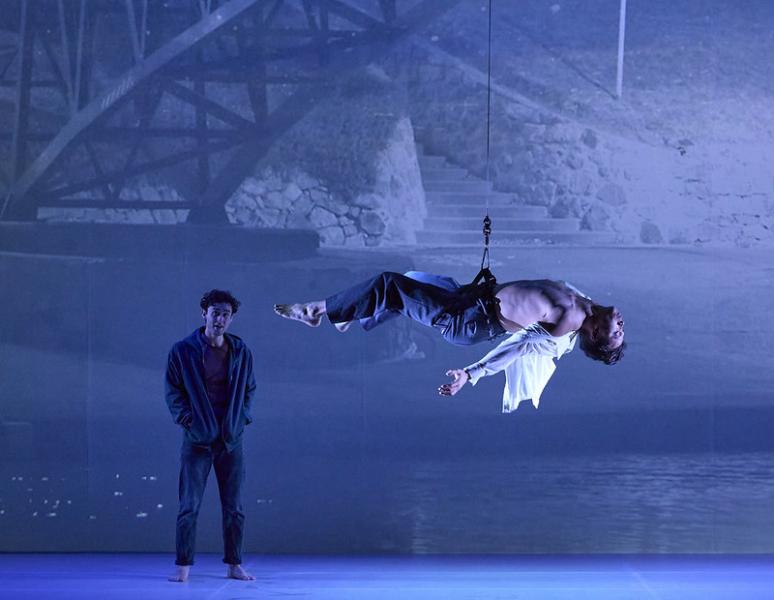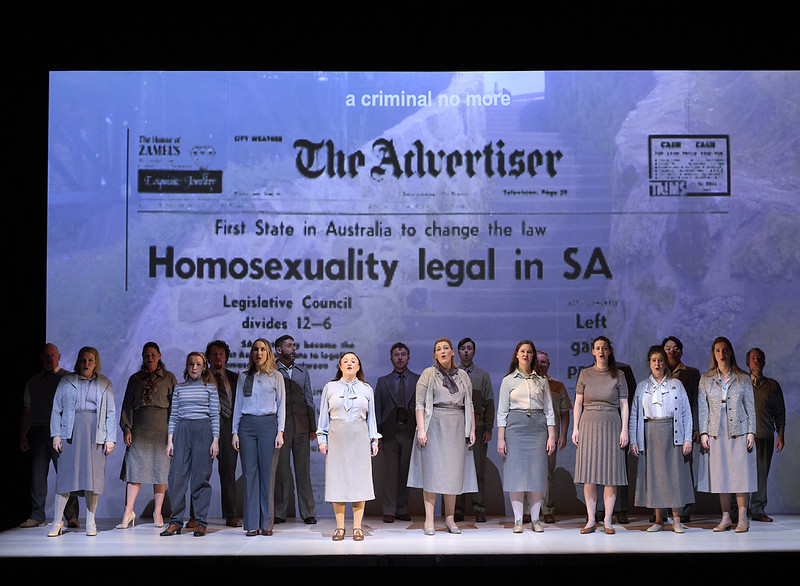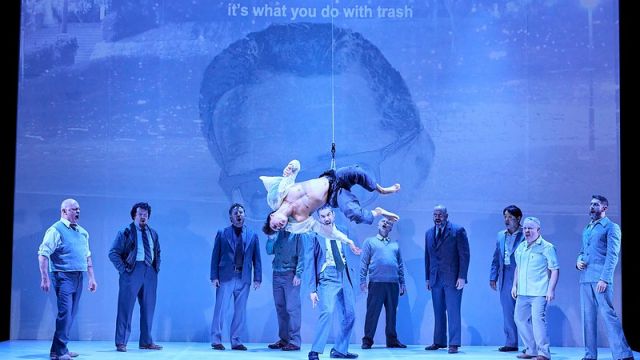Watershed: The Death of Doctor Duncan
There were lots of words recited in this oratorio that were unfamiliar to the stage of the Joan Sutherland Theatre. For starters “poofter” and “cum” don’t normally appear in the translation of operas.
Also, strikingly different to regular operas was a tight, engaging, contemporary story where not a word was wasted. Sadly, this stunning and beautiful work is only on stage for four performances, after its initial season at the Adelaide Festival.
In 1972 Dr George Duncan, a law lecturer at the University of Adelaide, drowned in the River Torrens after attending a known gay beat.
Three members of the vice squad later resigned from the police force under suspicion of involvement with Duncan’s murder, and over a decade later were charged over the crime.

The set comprised a large screen with projected documentary images of the events, a flat platform and a pool.
Poetically, the dancer playing Dr Duncan (Macon Riley) was suspended on a rope, and was choreographed being lowered up and down.
The libretto by Valentine and Tsiolkas is raw and visceral. It touches on the lust on the beat, the outrageous prejudice of the “poofter bashing” police officers, but especially fascinating was the portrayal of the reaction of South Australians to the crime.
Middle class women piously decried that they didn’t approve of what gay men did in the bedroom, but were nonetheless so morally affronted at the persecution of homosexuals that they joined the push for reform.
Within months of the murder, a Liberal Party politician, Murray Hill, had introduced a private members bill to decriminalise homosexuality, commencing the long road to reform.
The stark reality of just how much time it takes to turn around community prejudice was displayed by the homophobic cross-examination of gay witnesses at the trial of the police officers. 
But the tone of piece was not overly didactic; it let the events speak for themselves.
The documentary presentation of the narrative was sublimely embraced by the score from Joseph Twist. The eleven-piece orchestration under the baton of Brett Weymark had some unexpected treats including the rebellious riffs of a guitar.
The chorus sat on either side of the set with principals Mark Oates, Pelham Andrews and Tomáš Kantor skilfully portraying the various characters of the drama.
The final scene with Dr Duncan ascending to heaven in symmetry with the music was heart wrenching.

Review by David Spicer
Photographer: Keith Saunders
Subscribe to our E-Newsletter, buy our latest print edition or find a Performing Arts book at Book Nook.

